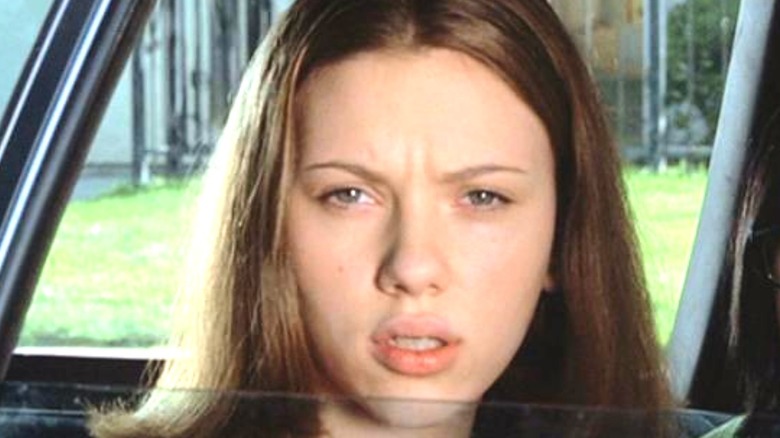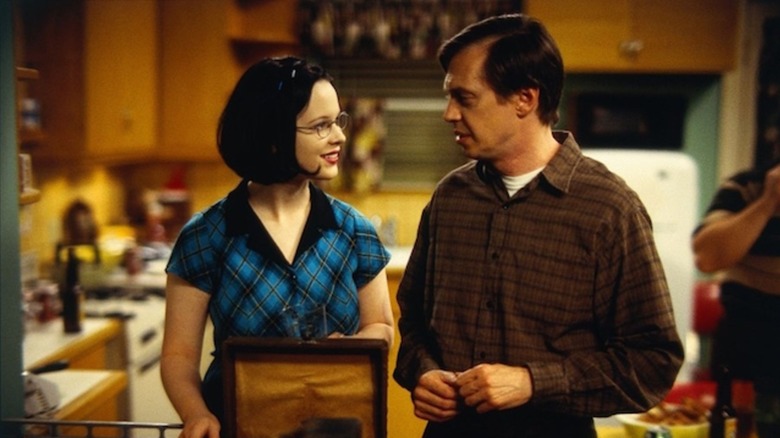The Original Ending Of Ghost World Was Surprisingly Dark
A time capsule of the 1990s, the 2001 black comedy "Ghost World" is a haunting ode to the seedy underbelly of suburbia. Directed by Terry Zwigoff, the film was loosely inspired by the comic book series of the same name by Daniel Clowes. The two joined forces to bring the characters of Enid Coleslaw (Thora Birch), Rebecca Doppelmeyer (Scarlett Johansson), and Seymour (Steve Buscemi) to life.
The film follows Enid and Rebecca, two recent high school graduates, as they attempt to rectify their teenage angst by conforming to the real world. Their friendship wavers as Rebecca begins to grow up while Enid remains jaded and unwilling to compromise. Following a cruel prank on Seymour, Enid becomes attached to the idea of fixing his love life, and the two become friends. However, once Rebecca reveals the truth to Seymour, things go awry.
"Ghost World" ends with Enid seeing Norman (Charles C. Stevenson Jr.) finally boarding the out-of-service bus he'd been patiently waiting for throughout the film. She resumes his spot and catches the bus to an unknown destination. Meanwhile, Seymour appears to be making progress with his therapist as he works through the events of the summer. The mysterious bus offers an open ending, but some fans have unique interpretations that line up surprisingly well with the film's near-miss finale.
So, what was the original ending for "Ghost World"?
A less ambiguous fate
Some fans have interpreted Enid boarding the out-of-service bus as a metaphor for suicide, though Clowes was initially taken aback by that understanding. In a 2002 interview at a Comics and Graphic Novels Conference (via Little White Lies), he said, "The first time I heard that I said, 'What? You're out of your mind. What are you talking about?' But I've heard that hundreds of times."
Interestingly, the original ending of "Ghost World" saw Seymour dying by suicide. In that same interview, Zwigoff said that he "briefly" considered going that route, "but we toned it down a bit" as it was too dark. Instead, the film ends with Seymour still in therapy and living with his overbearing mother.
Given the actual ending, there's a chance he considered or attempted suicide and moved back home during the recovery stage. He tells his therapist that he's "ready to get back to (his) old life," showing that things might have turned around for him. Given everything Seymour went through, however, it's also possible that he just needed time to recover from his hospitalization and couldn't live alone. Unlike the original ending, it's open for interpretation.

